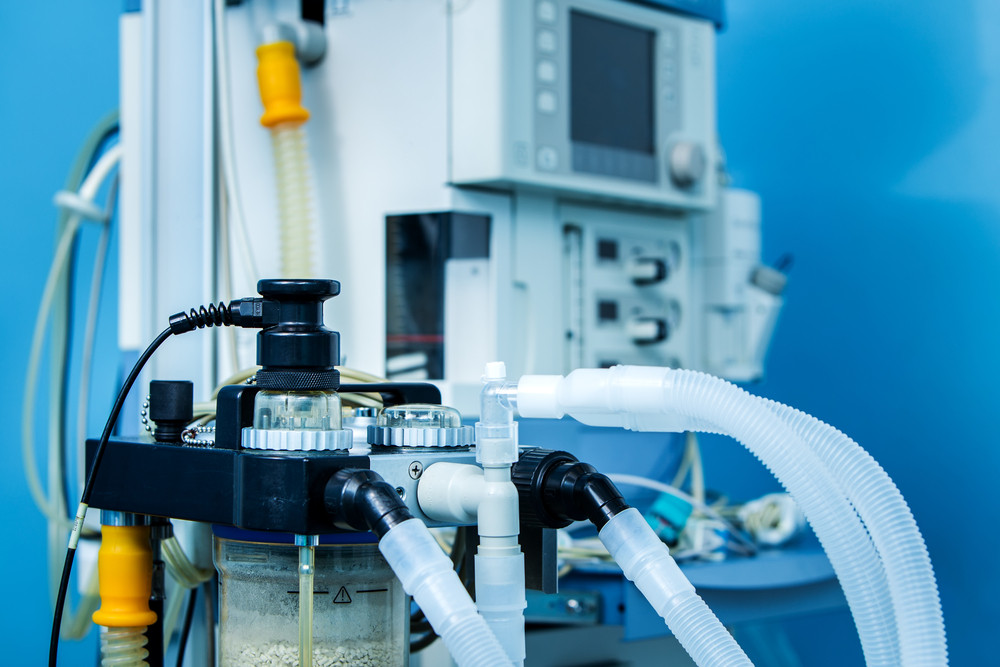Popular Reads
Top Results
Can't find what you're looking for?
View all search resultsPopular Reads
Top Results
Can't find what you're looking for?
View all search resultsDomestic innovation spurs West Java’s COVID-19 response
Indonesia’s most populous province has seen a declining trend of daily new cases of COVID-19 in the past few weeks, thanks to collaborative efforts of many stakeholders in introducing innovation to fight the pandemic.
Change text size
Gift Premium Articles
to Anyone
West Java -- Indonesia’s most populous province -- has seen a declining trend of daily new cases of COVID-19 in the past few weeks, thanks to collaborative efforts of many stakeholders in introducing innovation to fight the pandemic, a top official has said.
West Java, once the most affected province in the country after Jakarta, is now the fourth-hardest-hit province nationwide, trailing Jakarta, East Java and South Sulawesi with a total 2,901 confirmed cases and 171 deaths as of Tuesday.
West Java Governor Ridwan Kamil said collaboration of various stakeholders and innovation were among five key measures his administration had been focusing on in its COVID-19 response.
The pandemic had caused a dire shortage of health equipment like ventilators, testing kits, reagents and personal protective equipment (PPE) across Indonesia, which has long relied on imported raw materials and goods.
Local institutions, both private and state-owned, including those based in West Java, have since racked their brains to meet domestic demand in the face of disrupted global supply chains.
Read also: Indonesia looks to domestic innovations to tackle COVID-19
West Java was blessed as the home to about 60 percent of industries in Indonesia and more than 800 state-run and private higher education institutions, Ridwan told The Jakarta Post on Friday.
The West Java COVID-19 task force initiated a virtual meeting with some of these companies and universities, asking them to contribute to fighting the disease with their scientific knowledge and manufacturing capability, according to Ridwan.
“When the outbreak [was at its peak], the province’s COVID-19 task force decided to have a video conference with all the rectors of universities in West Java, asking them to help fight the disease using the science and knowledge they have in their research centers,” Ridwan said.
“We also engaged many strong technological state-owned companies in West Java. After a discussion, we found that, for instance, companies like [state-owned arms manufacturer] PT Pindad, which is used to producing military equipment, can also produce ventilators. So can PT DI [state-owned aircraft manufacturer PT Dirgantara Indonesia].”
Read also: Indonesian defense industry feels COVID-19 pinch
Pindad and PT DI, along with other entities based in West Java, such as state-owned pharmaceutical company PT Bio Farma, have been involved in a consortium formed on March 26 by the Research and Technology Ministry and the National Research and Innovation Agency (BRIN) to use their innovative capacity to fight the outbreak. The program also includes government research agencies, universities and hospitals across the nation.
But the program does not necessarily reflect the amount of COVID-19 research currently done across the country, as many universities have conducted separate research.
Minister Bambang Brodjonegoro, who is also the BRIN head, said any form of support from local governments “would be very helpful”.
“We hope that the regional administrations support innovation done by research institutions and universities within their regions. Once there is an outcome, they can make use of the result. For instance, ventilators and test kits [can be used] in hospitals and the surrounding communities,” Bambang said on Tuesday.
One of Indonesia’s domestically produced ventilators is the Vent-I, developed by West Java-based Bandung Institute of Technology (ITB), Padjajaran University (Unpad) and the Salman Mosque Foundation. The project is included in BRIN’s research consortium.
The device offers a continuous positive airway pressure (CPAP) function for patients with mild to medium respiratory symptoms, said Hari Tjahjono, a spokesperson for the Vent-I development team.
To manufacture the product, the team cooperates with several firms, including PT DI, which has produced 100 of the 139 Vent-I units made so far. All Vent-I units have been donated to nine provinces, with East Java and West Java having received the largest supplies.
Ridwan recently posted photos on his social media accounts showing the equipment deployed at hospitals in West Java, with a caption reading: "Let’s continue to support the work of the children of our nation.”
For COVID-19 testing, Bio Farma recently handed over a mobile biosafety level 2 laboratory to Unpad to improve West Java’s daily testing capacity. The lab is able to test 400 samples per day.
Ridwan also said five factories in the province had been able to produce high-quality surgical masks, and some other factories had even exported hazmat suits to Africa and Europe.
The West Java-based universities are seeking more innovation, with Unpad and the ITB having worked together to develop Surface Plasmon Resonance (SPR) sensors.
Unpad, in collaboration with private companies PT Tekad Mandiri Citra and PT Pakar Biomedika Indonesia, has also been developing a rapid antigen detection test, CePAD, which Ridwan dubbed “rapid test 2.0”.
CePAD and the sensors could be an alternative to rapid antibody tests and PCR (polymerase chain reaction) machines, respectively, said Muhammad Yusuf from Unpad’s Biotechnology, Molecular and Bioinformatics Research Center, who was involved in both projects. The prototypes are currently undergoing a series of tests by the Health Ministry for authorization.
Ridwan said he was aware of warnings from epidemiologists about a possible new wave of COVID-19 but he was confident about the province’s pandemic response and the capability of its hospitals.
“Since we are now more prepared, […], the COVID-19 peak will be lower and lower. At the end of the day, we can live with COVID-19 without worries,” he said.
The province, home to 50 million people, said 26.22 percent of hospital beds were occupied on Monday, a decrease from 77.48 percent on April 7, when West Java saw the second-most cases, after Jakarta.










